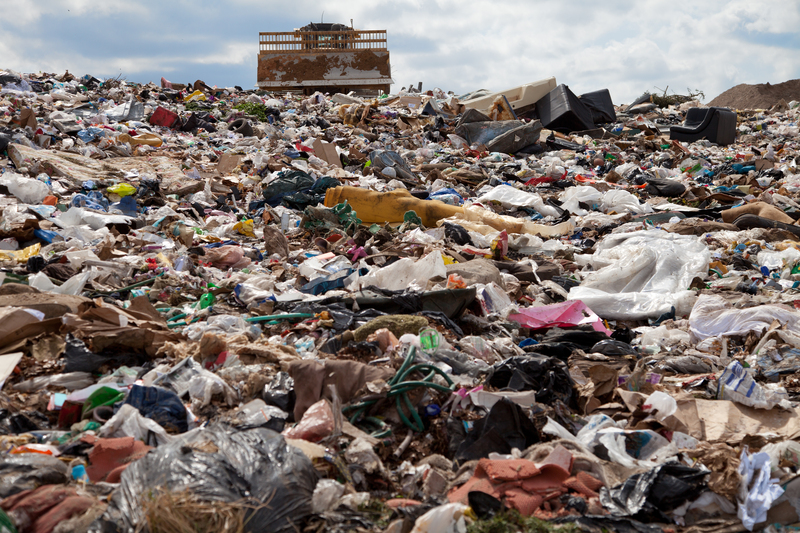As sustainability becomes a prominent focus in the culinary world, restaurants are seeking innovative methods to minimize their ecological footprint. A critical approach is the efficient recycling of food waste. With a significant amount of food discarded daily, the aim is to turn waste into wealth, paving the way for greener pastures in the food industry.
Understanding the Impact of Food Waste
Globally, nearly one-third of all food is wasted, contributing to both economic loss and environmental degradation. Food waste not only squanders resources but also releases methane, a potent greenhouse gas, as it decomposes in landfills. This has spurred many restaurants into action, focusing on the recycling and reduction of this waste to foster environmental responsibility.

The Driving Forces Behind Food Waste in Restaurants
A multitude of factors contribute to food waste in restaurants. Understanding these can help in creating effective strategies:
- Overproduction: Restaurants often prepare in excess to meet unpredictable customer demand, leading to surplus food.
- Food spoilage: Improper storage and handling can lead to significant losses.
- Plate waste: Large portion sizes frequently result in uneaten food.
- Trimming waste: Unused parts of food during preparation add to the overall waste.
Innovative Strategies for Recycling Food Waste
Implementing effective food waste recycling strategies can be transformative. Here's how restaurants are reshaping their practices:
Composting
Composting is one of the most accessible methods for managing food waste. By turning organic waste into nutrient-rich soil, restaurants can significantly cut down on landfill contributions:
- On-site composting: Larger establishments are investing in composting systems that process waste effectively within the premises.
- Partnering with local farmers: Restaurants can establish partnerships, providing their food scraps to be used as compost on farms, thereby supporting local agriculture.
Anaerobic Digestion
This technology involves breaking down food waste in the absence of oxygen to produce biogas, a renewable energy source:
- Energy production: The biogas generated can be used to power kitchens, leading to cost savings and a reduced carbon footprint.
- Nutrient capture: The process produces digestate, a fertilizer, promoting sustainable agriculture.
Donation and Redistribution
Many restaurants are taking proactive steps by donating surplus food to mitigate waste while helping those in need:
- Food banks and shelters: Through partnerships, safe, edible food can be redirected to people experiencing food insecurity.
- Food sharing apps: Digital platforms help connect restaurants with consumers or charities, streamlining the redistribution process.
Benefits of Effective Food Waste Management
Beyond environmental responsibility, recycling food waste offers several advantages:
- Cost reduction: Efficient waste management can reduce disposal costs and improve overall economic efficiency.
- Enhanced sustainability image: Practicing sustainability can elevate a restaurant's brand, attracting eco-conscious customers.
- Regulatory compliance: With evolving regulations towards zero waste, proactive measures help restaurants stay compliant.
Challenges and Considerations
Transitioning to greener pastures isn't without its challenges:
- Initial investment: The up-front cost of installing new technologies or systems can be significant.
- Staff training: Employees need education and training to effectively implement new recycling processes.
- Limited infrastructure: In some regions, the infrastructure to support food waste recycling is still developing.

Future Trends in Food Waste Recycling
Restaurants around the globe are not just stopping at current practices; they are continuously innovating:
Technological Advancements
- Smart bins with sensors can track the type and weight of food waste, providing data-driven insights for better resource management.
- Emerging apps can predict demand more accurately, helping restaurants better tailor supply to demand and minimize waste.
Circular Economy
The concept of a circular economy is being embraced, where waste is re-invented as a resource, promoting complete utilization:
- Food waste is being explored as a source for developing bioplastics and packaging materials, aiming to close the loop on waste.
- Incorporating by-products into the menu creatively can reduce the volume of waste and offer unique culinary experiences.
Conclusion
Recycling food waste in restaurants is more than reducing scraps; it's about crafting a sustainable future. By implementing these innovative strategies, the food industry can significantly reduce its environmental impact, providing benefits that extend beyond the dining experience. It is time for the hospitality industry to embrace these opportunities, ensuring greener pastures for our planet and future generations.
Together, through awareness, action, and innovation, the goal of reducing food waste is within reach.
Final Thoughts: As more restaurants adopt waste-friendly practices, the cumulative effect could lead to a profound global impact, moving us towards a more sustainable society.